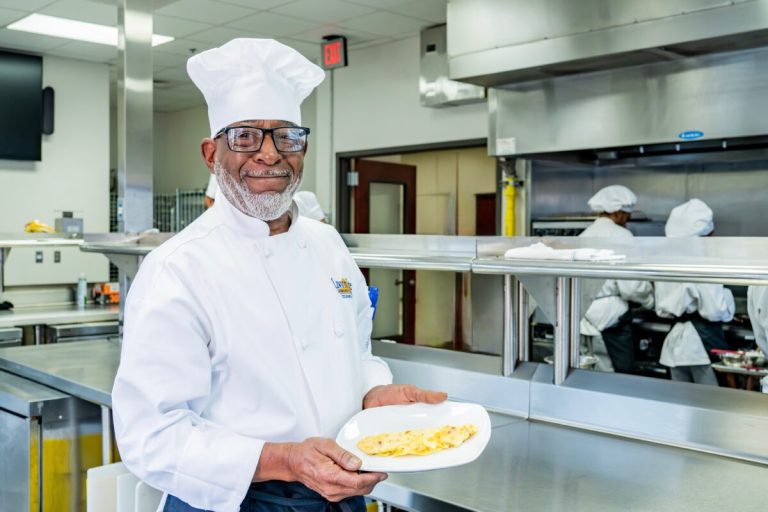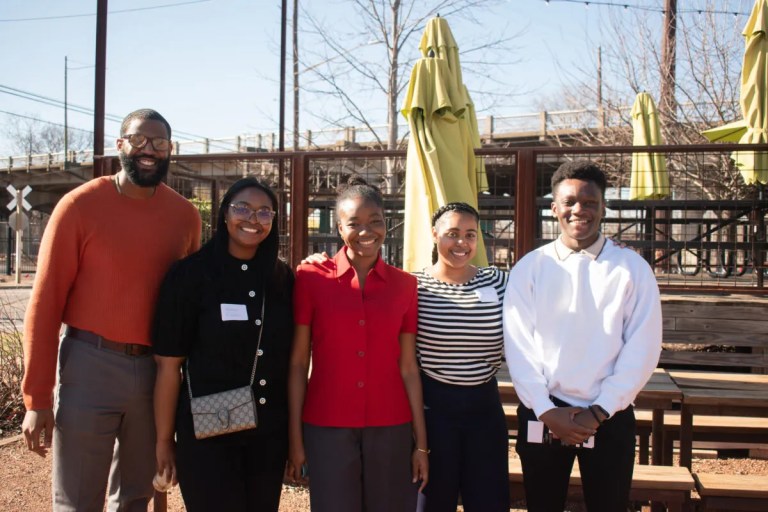It’s Human Trafficking Awareness month. People with disabilities face unique risks—what you need to know
Reading time: 5 minutes

Human trafficking is a big issue in and around Birmingham. It’s an especially big issue for people with disabilities in our area. We reached out to Fowler Davis, LLC to find out about the problem and what all of us can do to help. Here’s what we learned.
First, meet Fowler Davis, LLC

Fowler Davis, LLC is an advertising and video production company in Birmingham. In 2019, they produced a 15 minute film on trafficking called Hidden Gem right here in town. Now they’re working with the Alabama Council on Developmental Disabilities to help educate the rest of us.
The issue

- Human trafficking is a big deal in Birmingham. Literally.
- The commercial sex industry generates $110 million each year in the Birmingham metro area, according to estimates by Homeland Security Investigations. (Did that number blow your mind? Yeah, me, too.)
- This number doesn’t include illegal activity in strip clubs or illicit massage parlors. It also doesn’t include child trafficking.
- Young people with intellectual or developmental disabilities face increased risks for human trafficking.
“Human trafficking is a major problem hiding in plain sight in Alabama. It is a modern form of slavery that’s happening in every city and town in the state.
Alabama has a high percentage of familial trafficking by a parent, family member, caregiver, or trusted adult.
Persons with intellectual and developmental disabilities have difficulty understanding risky situations or how to avoid risky persons.”
Jeff Davis, Co-Owner of Fowler Davis, LLC.
Why it matters

- Alabama’s interstates serve as major human trafficking corridors throughout the Southeast. Meaning, this isn’t someone else’s problem. It’s ours.
- According to the Centers for Disease Control (CDC), people with disabilities are 4-10 times more likely to be victimized.
- Children with disabilities are more than twice as likely to be victimized.
Risk factors for people with disabilities:

Anyone can become a victim of trafficking. And, people with disabilities are at greater risk of exploitation—whether it is an intellectual and developmental disability, physical disability, or mental illness.
The presence of any of these qualities makes a person more vulnerable to experiencing human trafficking:
Situational risk factors
- Dependence on multiple caregivers to meet their basic needs.
- Frequent isolation from conventional social environments.
- Children in the foster care system.
Educational risk factors
- Socialization to comply.
- Limited education about sexuality and heathy relationships.
- Limited understanding of the right to bodily autonomy.
Communication risk factors
- Limited social and/or communication skills, including the failure of others to recognize their behavior as a form of communication.
- Myths and misperceptions society in general has regarding people with disabilities.
- Disability, especially communication disorders and intellectual disability, are over-represented in the runaway youth population
How it happens

There are a number of pathways into human trafficking, as we outlined here.
- Social media platforms and gaming apps offer easy access for predators to recruit at risk / vulnerable children and teens.
- Predators promise acceptance and money.
- Then they groom them into a trusting relationship, based in fantasy.
- Many ask for and receive compromising photos from their victims.
- Photos are good for blackmail, and predators will tell the victims that they photos are everywhere and that they can’t go back to their normal lives.
- Because of the manipulation, victims believe predators and do what they ask out of fear, trauma, guilt and shame.
What you need to know
Information is power, and learning about the issue is the first step to preventing it in the first place, or to helping to get someone help when they need it.
Learn more

A lot of great groups in our area and nationally are working hard on this issue. Here are just a few:
- Alabama Council on Developmental Disabilities
- Child Trafficking Solutions Project
- Department of Homeland Security Blue Campaign
- Junior League of Birmingham
- Trafficking Free Zone Initiative
Be part of the solution

- If you suspect possible human trafficking, call 9-1-1 immediately with details. Don’t try to intervene yourself.
- To get help or to report suspected trafficking to Federal law enforcement, call the Department of Homeland Security Blue campaign at 1-866-347-2423.
- For help from the National Human Trafficking Hotline, call 1-888-3737-888 or text HELP or INFO to BeFree (233733).



